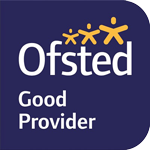Psychology Overview
Our Vision
For students to receive a vigorous, inclusive, and challenging curriculum, based inside a warm and welcoming environment. For students to work alongside a committed Psychology educator who seeks to prepare them for their next stage of education, and personal wellbeing. For students to study Psychology across a two-year period, developing their abilities to reaching their full potential in the ever-changing world of psychology.
Psychology Curriculum
Psychology is the scientific study of mind and behaviour. The Applied Psychology BTEC Level 3 Extended Certificate offers you thorough understanding in applying the principles and theories of psychology. Psychology at Aylesford is for post-16 learners wanting to continue their education through applied learning, and who aim to progress to higher education and/or employment, possibly in psychology. Below is a breakdown of years 1 & 2 of Psychology.
Psychology at Aylesford
By the end of the two-year long course, students will have been introduced to a multitude of topics within psychology, preparing them for university and/or work. They will be able to create and deliver presentations, including presenting their own research, and they will be able to medically locate areas of the brain identifying areas of control over human movements and thought processes. They will explore the careers that psychology can lead them into, and they will meet many professionals who will deliver speeches about how psychology is a fundamental component within their line of work.
Year 1 of Psychology
The first year of Psychology consists of multiple modules surrounding key assumptions of psychology and an introduction into research from the worlds leading psychologists & psychiatrists. The course prepares students to view psychology in 4 different approaches; Social approach, cognitive approach, biological approach, learning approach. Once students have developed their understandings of the 4 approaches of psychology, they will then be able to apply key approaches to human psychology surrounding aggression, sex & gender, and consumer behaviour. Students will later embark on their own experiments. Students in year 1 will complete one exam and one coursework unit. Learners will be given the exciting opportunity to present their research and findings in Aylesford’s conference room at the end of their first year, mirroring how psychological research is presented in the real world. Students will have built up the confidence and courage to present in this formal environment during their first year of Psychology from previous small group presentations and individual presentations. Presenting and public speaking is a nerve-wracking experience, which the Psychology department recognise, and we work at the student’s pace to facilitate their learning journey of presentational skills, getting them ready for the world of work and/or university. We work with the student to combat any fears of presenting research, and focus on the student mastering these skills early on to prepare them for reaching their full potential.
Year 2 of Psychology
The second year of psychology entails one exam and one coursework unit. The exam is based on topics including stress, behavioural addiction (gambling & shopping), physiological actitation (alcohol & smoking), theories of persuasion, and treatment & management of stress and addiction. In these lessons, the students embark on a learning journey of understanding individuals who have faced many challenges in life. We discuss openly what happens to the brain during addiction, the behaviour presented whilst “addicted”, and we watch many documentaries listening to the real-life stories of others who have faced challenges combatting their addictions. Students will learn Psychopathology (mental disorders), and complete coursework based on modern and historical concepts of psychopathology in society. They will later examine causes, different types and characteristics of mental disorders. They will finish the year exploring professional approaches to the treatment of mental disorder, creating a portfolio surrounding a mental disorder of their own choice.
Future Learners
As a psychology student, you will enter a classroom which facilitates open minded attitudes, numerous debates, and an environment dedicated to developing your skills- ones that are required for the world of work & higher education. It’s tough but so rewarding!
To study psychology at sixth-form, you need to be organised, motivated, and dedicated to a challenging subject which surrounds important topics such as mental health, brain autonomy, and human behaviour. You need to have an open mind to discussing challenging themes surrounding difficult topics such as unethical historical experiments, abuse, and mental disorders.
Students who take psychology at Aylesford will be given the opportunity to create their own psychological experiments in their first year of study based on any topic of choice (before you ask, no, there will not be any harmful electronic devices or re-creations of unethical procedures performed previously in historical psychology).
You need to be an individual who is open to developing both personal and professional skills and most importantly, meeting deadlines. Less formally, you will naturally become part of the psychology family- whereby students state that once they enter the classroom they feel at ease and their shoulders drop (they relax). We have many “pranks”, (psychology experiments of course), we listen to a diverse background of experiences of childhood, and we work incredibly closely with criminology (Mrs White teaches both subjects). We discuss the psychology behind criminal behaviour, and what makes an individual turn to a life of crime/murder/deviancy.
Finally, and most importantly Psychology supports mental health & wellbeing profoundly, with your best interests in mind. Even when the classroom door is closed, it is always open; meaning you are always welcome to pop in for a chat. This is something you will always hear during years 12 & 13, with dedicated staff here to support you outside of the classroom as well as inside it. There is no judgment, and the psychology environment is educational beyond the curriculum, understanding of all, and inclusive.





